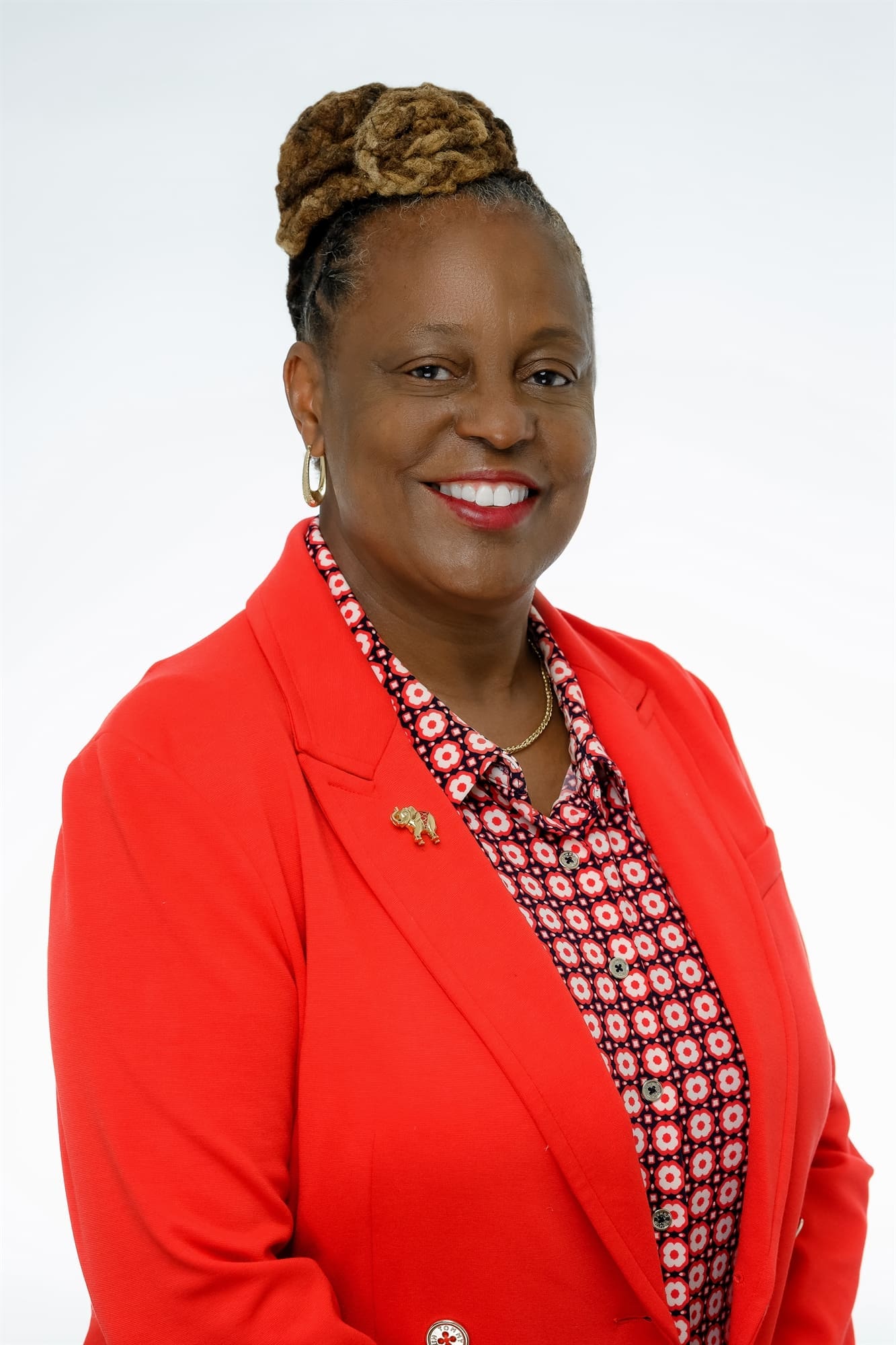

With the deadline to file to run for school board elections is two weeks away, current board members share the potential impact of successful candidates. (Photo by designbydx/Adobe Stock)
School board members in their first term say parents who hesitate to run for school board should know that new members can make a difference right away.
Don Patton was one of the drivers of Christina School District establishing a fresh method of evaluation for Superintendent Dan Shelton to hold him accountable for the district goals he sets each year.
“School districts have the charge to hire a superintendent and let the superintendent run the district, but I feel like that’s the mistake,” he said. “That’s what I’m pushing against…you also have a responsibility to monitor, and I always used to tell my teachers to ‘inspect what you expect’.”
The deadline to file to run for a board seat in 2024’s election is Friday, March 1 at 4:30 p.m.
Education groups and advocates across the state have long been in unison that public participation in school boards – whether running for a seat, going to meetings, or voting in the election – is crucial for a healthy and successful education system.
It’s also a way to help ensure transparency and accountability between schools, families and the communities they serve.
Here’s a look at how three recently-elected school board members feel they’ve made a difference in Delaware.
Don Patton
Christina School District
Patton was elected to the Christina School District Board of Education in 2021 after working for the district for more than 25 years.
It’s a way of paying his own education forward, he said.
“I just really felt like I owed, you know, the Biblical saying, ‘to whom much is given, much is required’,” he said. “It took a little poor boy out of projects and allowed me to be able to survive and provide a good life for me and my family, so I just felt like I could give something back.”
He ran because he thought the board was not really focused on the things that it should be and because he believed that as a former educator, he could bring some new ideas to the table.
“You have to be a part of either going to school boards or being in education and understanding that system and a process,” he said.
RELATED: Many Del. districts don’t evaluate superintendents annually
RELATED: Christina board looking for new model to evaluate superintendent
Patton, now the board president, didn’t sit down and start commanding.
He attended a national “bootcamp” hosted by School Board Partners, a multi-phased training event to help shape individuals into becoming effective school board members.
“It teaches you how to be a better school board member, and in Delaware, we don’t have that,” he said. “Delaware School Board Association does a bootcamp one day and then that’s it.
They give you some materials to read on your own and so a lot of times people who don’t understand education go back and try to be good school board members, but in effect, they’re not because they’re allowing things to happen that shouldn’t happen, and that’s the battle.”
It’s important to him to make sure his colleagues can be the best board members possible.
That way, he said, if he drops off the board tomorrow, it will still be filled with people who are educated about being an effective school board member.
Within his first two years in office, Patton said the school board has shifted into a data-driven mindset.
For its monthly school board meetings, there are always presentations on individual schools, which Patton says is indicative of the group zeroing in on student outcomes.
Patton also is on the 15-person governing council of the Wilmington Learning Collaborative, tasked with using millions of state dollars to improve students’ social and academic outcomes in nine Wilmington elementary schools.
“We’re now holding people accountable for data, so when purchase orders or questions around services or whatever comes to the board, we now specifically push back and say where’s the data?” he said. “For instance, they want to buy a program, so how does that impact student outcomes? That’s a question, and how do we know when this has been successful?”
There must be some metrics established to measure the success of new investments, he said.
“And if there’s not, when you come back to the board the next time and ask we’re saying, ‘No, no, no, no, no, no. This isn’t working’,” he said. “Those are some things that we’re doing that we weren’t doing before.”
If he had to pinpoint one future goal, it would be the state mandating in-depth training for elected school board members.
“We just elected two new board members, and they’re very good people and they’re very committed people,” Patton said. “They don’t have the experience to be making decisions on multimillion dollar contracts and on student outcomes because they don’t have the skill set yet.”
Patton, who is 75, said he’s still learning how to be the best board member he can be and that he tries to work with folks who are opposed to change rather than getting upset.
“Across this country, one of the things I learned from school partners is our educational system, and I said this to Dan Shelton, our system is in chaos and if we don’t get a handle on it in the state of Delaware, it’s going to continue,” he said. “And we’re going to continue to fail kids year in and year out. We have got to do something different.”
Having a mentor or coach to guide someone considering running for school board is important, he said. So is researching the district and building relationships with current board members and district faculty even before running.
They shouldn’t be lone wolves, he said.
More parental engagement is the next impact he hopes to have on the board.
He would like to see every school have a parent or community advisory board that works to help make decisions.
Serving on a school board can take a lot of time if candidates include the commitment to learning what the duties are, Patton said.
It all comes down to how much a candidate wants to ensure that the main goal is student outcomes,” he said.
“I’m trying to do some things because I think I owe it to our kids and our state to make it better so that when I leave, I can say at least I worked hard to make it better for the time that I was there,” he said. “My thought process is how do I help our kids who are suffering tremendously become better and we can’t do that unless we change the system.”
Felecia Duggins
Capital School District
Duggins was elected to the Capital School District Board of Education in 2022, running as a 30-year retired educator and a grandmother of half a dozen children in the district.
“I just had a feeling that I had a level of expertise and I wanted to be more involved in my grandchildren’s education,” she said.
She wanted accountability, equity, diversity and to give a voice to community members.
The Capital board also recently has changed how it evaluates its superintendent.
“One of the big things that we’ve done is implementing an evaluation system for our superintendent,” she said. “A lot of a lot of superintendents in Delaware, believe it or not, are not evaluated.”
This will be the second year Superintendent Vilicia Cade has been evaluated, he said.
Duggins, who is now the board president, said a big accomplishment of her tenure was being selected as a fellow for School Board Partners, in the same cohort at Patton, which had about 40 people.
They were sent to retreats in Georgia, Louisiana and Oregon.
Because she is retired, Duggins said the time commitment of being the board president is not a burden to her, but it can be for those with full-time jobs.
She meets with the superintendent once a month, and also attends committee meetings of the district as well as other meetings.
“But it is time well spent,” she said.
It’s important for candidates and newly-elected board members to have their pulse on the community, she said, and make sure they know what the district’s families want.
Having a connection with other school board members to have their support is also important for making changes to the district.
“If you agree with what the community members want, meet with them, meet with parents and come up with a plan on how you’re going to accomplish it,” she said. “It is a very important job and we need good people, and we need knowledgeable people because they are making the decisions that affect our students, and they are our most valuable resource.”
Vic Leonard
Red Clay Consolidated School District
Leonard was elected to the Red Clay Consolidated Board of Education in 2022.
As a high school science teacher, wrestling and softball coach for two decades, he thought the district wasn’t going in the right direction.
“Hearing other teachers over the years, and seeing it with my own eyes, I knew there needed to be some changes in the district, not only on the district administration side, but also in community engagement, which I saw was declining over those 20 years,” he said, “so I ran on giving voice to the the community members in Red Clay that did not have a voice and encouraging more community engagement.”
One of his accomplishments was establishing a district committee to evaluate and suggest solutions to the decline of A.I. du Pont High, where he used to work.
Over the past decade and a half, there’s been a steady decline in attendance – from 1,492 students in 2008 to 605 students in 2023-2024 – as well as test scores.
RELATED: As A.I. du Pont High enrollment dropped, so did test scores
“Over the decade-plus of decline, there was nothing from the board, nothing from the district to even address that issue,” said Leonard, who is now board vice president. “I was just amazed. Nothing was done. So the committee met every month, and we came up with several reasons.”
Some of the reasons included competition from charter and magnet schools; the district no longer providing transportation to the school for students who choice in; affluent parents sending children in the school’s feeder pattern to private schools.
RELATED STORY: Interest rises in A.I. duPont going green to stem enrollment drop
His committee proposed partnering with Goldey-Beacom College to create a college academy that allows A.I students to earn up to 30 college credits during their high school years. That would allow them to enter Goldey-Beacom as a sophomore after graduating from A.I.
The committee also wanted the school to follow career and technical education pathways. Leonard cited the popularity of gaming and health pathways.
One of his key hopes, though, was shot down. He wanted a board policy to address school attendance zones at least every 10 years in conjunction with the census, because populations have shifted in the district.
Leonard also is pushing the superintendent to do a review of the secondary feeder patterns before September of this year.
Since he’s been elected, the board has mandated that all district meetings are livestreamed so busy parents have a virtual option to stay up-to-date on information and news.
Like Patton, Leonard also encourages former educators to run for school boards.
“That’s very helpful, being in the system itself,” he said, “but the biggest thing is coming in with an open mind.”
New board members need to learn about Robert’s Rules of Order and certain procedural policies for conducting a meeting, but there are workshops and training sessions in Red Clay to help new board members.
“A board member should be able to spend at least five hours a month, between meetings, to react to district events and agenda discussions,” he said. “It is always good to be prepared for the board meetings and ask pertinent questions for understanding, accountability and, of course, transparency to the district families and community as well as the educators serving our children.”
Community engagement, accountability for district administration and transparency with the Red Clay community are aspects of the district he hopes to continue to improve.
“We need new board members that are willing to challenge the status quo and fight for what is right for all families and educators and come up with that mindset,” he said. “There is a lot of resistance and … I met a lot of resistance on the board when I came on, with people who have been on the board for decades.”
He wants to address the length of a board member’s tenure, perhaps proposing term limits to legislators.
“Some of them get ingrained with the district and they don’t want to make change and we lose accountability and transparency when that happens. and we see that on the board today,” he said. “You’ve got to be willing to challenge that, and that’s my biggest thing for new board members, you need to be willing to make change.”


Raised in Doylestown, Pennsylvania, Jarek earned a B.A. in journalism and a B.A. in political science from Temple University in 2021. After running CNN’s Michael Smerconish’s YouTube channel, Jarek became a reporter for the Bucks County Herald before joining Delaware LIVE News.
Jarek can be reached by email at [email protected] or by phone at (215) 450-9982. Follow him on Twitter @jarekrutz and on LinkedIn
Share this Post











